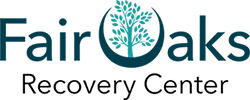 It is natural to want to love and support people who are important to us, especially when they are suffering from an illness.
It is natural to want to love and support people who are important to us, especially when they are suffering from an illness.
Addiction, like any other illness, can wear on the person diagnosed and the people around them. It is important, therefore, to ensure that the people who make up the support system of a person with addiction also take care of themselves.
Avoiding Compassion Fatigue
While it is widely recognized that caring for a loved one with dementia, cancer, or limited mobility can create a condition called Caregiver Fatigue, it is sometimes overlooked that similar concerns apply to those who love and look after a person in recovery from substance abuse. Compassion Fatigue is similar to Caregiver Fatigue, but is a term more commonly used to apply to professionals and loved ones who support a person in active mental health or substance abuse crisis and recovery. This condition is also sometimes called Vicarious Trauma or Burnout.
According to the Compassion Fatigue Awareness Project, advanced symptoms of Compassion Fatigue can include:
- Excessive blaming
- Bottled up emotions
- Isolation
- Substance abuse used to mask feelings
- Compulsive behaviors such as overspending, overeating, gambling, or sexual addictions
- Poor hygiene and appearance
- Legal problems
- Nightmares and flashbacks to traumatic event
- Chronic physical ailments
- Apathy, sadness, or no longer finding activities pleasurable
- Difficulty concentrating
- Mentally and physically tired
- Being preoccupied
- Denying problems
Staying Healthy
To avoid falling into the unhealthy behaviors mentioned above, it important that professionals in helping fields, as well as the loved ones of people who suffer from addiction, take care of themselves. Pushing oneself too hard won’t result in better outcomes for anyone.
Practicing Self-Care
The activities involved in making one’s own mental and physical well-being a priority are referred to as self-care. Social media often glamorizes self-care as lavish vacations, fancy manicures, and expensive clothes, but self-care can be simple and affordable.
Often, people do self-care activities without labeling them as such. Routine hygiene, exercise, paying bills, washing dishes, and getting adequate sleep are self-care activities. While these forms of self-care probably won’t yield a sexy picture for Instagram, they are critical in maintaining a sense of normalcy and well-being.
Setting Boundaries
It is tempting to do everything possible to help someone we love. However, it is important that a person recovering from addiction learn to build a full network of support, be allowed to experience the satisfaction of doing things for themselves, and learn to accept what others are and are not able or willing to do for them.
As a person moves forward in recovery, they should be cultivating as many healthy relationships as possible so they do not lean too heavily on any one support and are not tempted to turn to old contacts who might tempt them into unhealthy choices. Also, because different supports have access to different resources, one support may be better suited to guide the person in recovery in the right direction on a particular issue.
For a person in addiction to have a healthy network, it is key that they utilize both formal and informal supports in appropriate ways. Formal supports are paid service providers like therapists, substance abuse counselors, and doctors. Informal supports are unpaid people such as family, friends, AA/NA, and the faith community. Formal supports may disappear if a person loses their insurance or can no longer pay, while informal supports generally remain without these resources.
Because each of these roles is different, the boundaries are also different. A person in recovery may be allowed to call their sponsor at a time outside the hours when they could call their therapist. It might be okay to call some family members for rides to appointments, but not others. Boundaries should be clear and consistent.
If a person in recovery is repeatedly calling the same person over and over, no matter the nature of their concern, one way to address this is to have the person in recovery make a “circle of support” diagram to help them visualize who they should call and when. A circle of support starts with four nested circles. In the smallest, innermost circle, the name of the person needing support is written. In the next circle, they list family, friends and other supports that are available to them around the clock, regardless of their ability to pay. The next circle includes people they can contact, but with a restriction on time or the particular need in question. The final circle contains people they can only contact if they have the ability to pay. For ideas of who a person in recovery might list in their circle of support, see our blog on Healthy Ways to Manage Stress in Recovery.
Seeking Therapy
While it is often accepted that a person in addiction may need mental health interventions, addiction affects the whole family. Therapy may benefit more than just the person in recovery.
Loved ones may share a history of trauma with the person in recovery. They may find their mental health suffering from worrying about a relapse, legal issues, overdose, or the host of other struggles a person in active addiction might face. They might also need help restructuring the relationship to be healthier for both parties. Talking to a nonjudgmental, trained professional can be helpful in learning how to address feelings around a loved one’s illness.
Managing Recovery Expectations
If your loved one is seeking treatment for a substance use disorder, remember that recovery is a marathon and not a sprint. For you to continue to support your friend or family member throughout their journey of sobriety, it is important that you pace yourself, rest, and know when to say no.



 It is natural to want to love and support people who are important to us, especially when they are suffering from an illness.
It is natural to want to love and support people who are important to us, especially when they are suffering from an illness.